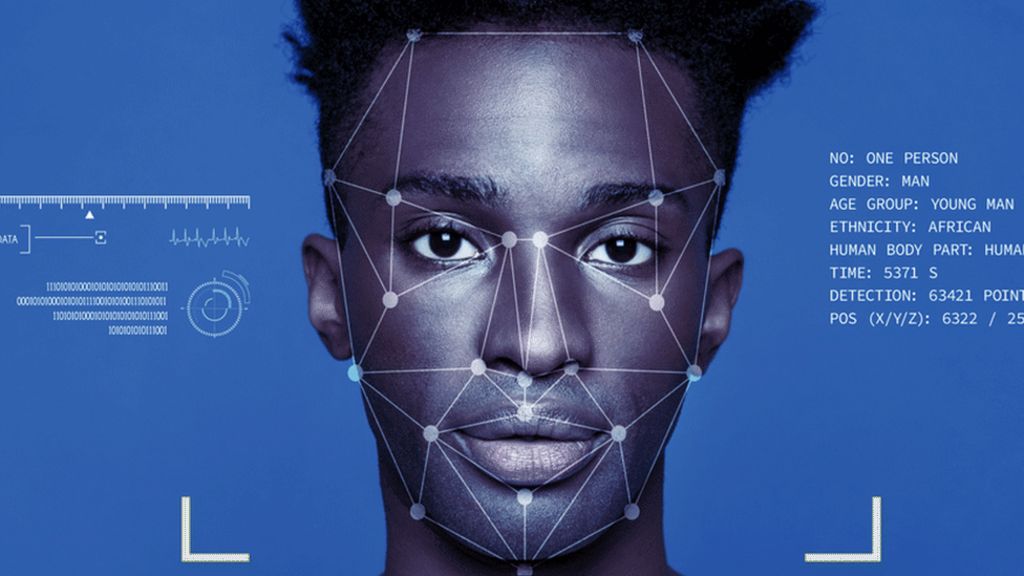
Artificial intelligence (AI) is one of the most fascinating and rapidly advancing fields in computer science. If you want to learn about AI, where should you start?
There are many great books on AI, I collected only the top 23 books in this article, those I would definitely recommend for a read.
What Are The Most Important Fields of Artificial Intelligence?
Artificial intelligence is a vast and growing field with many subfields. Some of the most important fields of AI include
- Machine learning (ML)
- Deep Learning
- Reinforcement Learning
- Generative Adversarial Networks (GAN)
- Natural Language Processing (NLP)
- Computer vision
- Neural Networks
- Speech processing
- MLOps
- Edge AI
- Robotic Process Automation (RPA)
- AI ethics
- Hyperautomation
Some of these fields connects to each other, or could be considered as subfields like GANs were definitely a subcategory of Machine Learning. But in terms of usage some these fields emerged and gained more notability in the recent years.
Will We Benefit From Artificial Intelligence?
Only if we are prepared and open minded. A small percentage of humanity still doesn’t use smartphones, which means there will be always people who will simply deny new technologies including artificial intelligence.
Many experts believe that AI will soon start to have a positive impact on humans in various fields of life and work. In what fields will AI empower us?
- Personal AIs – in 6-12 years – AI will help to perform small or repetitive tasks, searches, make notes all by itself.
- Robots (humanoid) – in 10-15 years – AI will be physically present in our lives, by making our everyday easier and more productive.
- Personalization in education – in 10-15 years – AI can personalized learning experiences for students and help teachers create more effective lesson plans.
- Healthcare and quicker diagnoses – in 5-10 years – AI can help doctors diagnose diseases and plan treatments more accurately. It can also help patients manage their health conditions better.
- Transportation and traffic – in 3-6 years – AI can help reduce traffic congestion and make transportation services more efficient.
All of the above points are near future, but isn’t AI here and now? Well, artificial intelligence has been around for quite some time. Some real life artificial intelligence examples that are available now:
- Dall·E 2, Midjourney image generator projects (OpenAI, David Holz) – creating visual images based on textual input
- GPT-3 and other language models (OpenAI, Microsoft, Meta) – using short prompts (headlines) to create paragraphs from text
- Tesla and self-driving cars (Tesla) – while self-driving cars are not 100%, these cars are here and now and we can test their capabilities, several experts says that full self-driving cars will be available in 3-6 years
- Chatbots and call answering bots – if we call a help center almost 90% of chance that we will speak to an AI, these agents try to solve our problems
- Text to Voice, voiceover tools (Murf, Speechify, Synthesis etc.) – the quality of output voice have been dramatically increased in case of these tools in the recent years thanks to machine learning
The recent advances in machine learning technology have made it one of the most widely researched fields of AI. The potential for machine learning to revolutionize so many industries has drawn researchers from all over the world to this field.
In 2022, machine learning and it’s subfields will be the most widely researched field of artificial intelligence with many practical application out there.
Every field of AI has its own unique set of challenges and applications.
NON-FICTION AI BOOKS
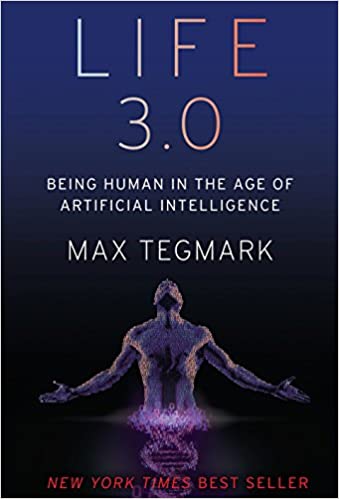
Life 3.0, by Max Tegmark
Life 3.0 is one of the AI books meant to challenge our thinking about AI, intelligence, and humanity’s future. Compared to other technologies, AI has significant potential to change the future. But what impacts will AI have on war, crime, justice, employment, and society?
This book talks about how we should use automation but not leave people without purpose or income and what we need to tell our kids about AI. It also sheds light on how we can make AI systems of the future carry out the required tasks without malfunctions, hacks, and crashes.
Is it possible that machines will outsmart us, or will AI be an excellent addition to flourishing life with immense power?
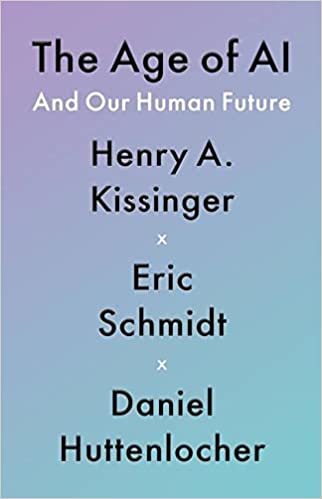
The Age of AI, by Henry A Kissinger
The Age of AI considers how AI will alter our political, societal, and knowledge relationships. This book is the roadmap we need for current times and the future.
An AI figured out how to win chess through moves even chess grandmasters had never imagined. A different AI then analyzed molecular properties scientists couldn’t make out and discovered a new antibiotic.
Currently, jets powered with AI are beating experienced pilots in dogfights simulations. AI is an everyday matter employed in different fields like medicine and education. You only need to search or stream to carry out various tasks. That’s how it has transformed how we experience reality.
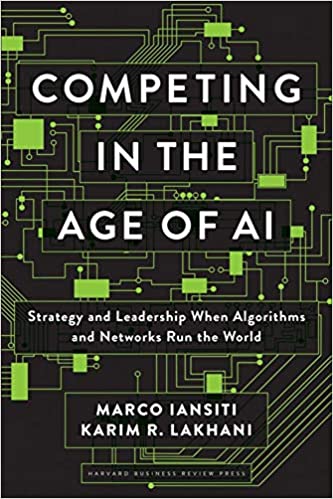
Competing in the Age of AI, by Marco Iansiti & Karim R Lakhani
The organizations built on AI operate differently. They have redefined their architecture for creating, capturing, sharing, and delivering value.
AI gets rid of traditional constraints on scope, scale, and learning that have resulted in restricted business growth. Processes driven by AI are more scalable than those fueled by conventional methods. They give companies more scope and are drivers of accuracy, complexity, and sophistication.
Marco and Karim highlight how AI reshapes competition and forces conventional companies to recreate their operation models. They also explore opportunities and risks digital firms create and the challenges and responsibilities leaders need to act on.
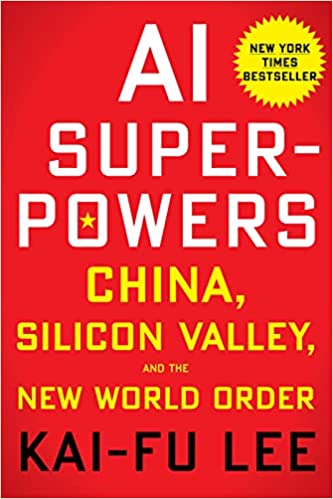
AI Superpowers, by Kai-Fu Lee
Written by a worldwide respected expert on AI, this book discusses how China has been up against the US regarding AI matters. AI Superpowers is more of an argument that unprecedented AI developments will soon cause dramatic changes. Changes that none of us ever anticipated.
Lee says that the US-Sino AI competition is about to get heated. Still, China and the US need to accept and, most importantly, embrace technological power’s essential responsibilities on blue and white-collar jobs.
Lee says that basic income may not be the solution and gives descriptions of jobs that may be affected and in what period. He also talks about jobs that AI may enhance and solutions to the changes.
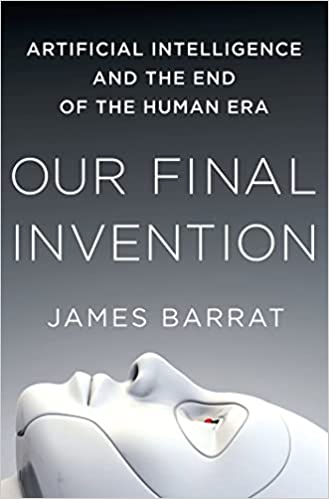
Our Final Invention, by James Barrat
This book explores the perils advanced AI may bring forth. James uses profiles of groundbreaking AI systems, industry watchdogs, and tech visionaries to drive the message.
Up to now, no rival has come up against human intelligence. But can we coexist with machines with intelligence that dwarfs our own or even gets the chance? AI could match human intelligence in less than a decade and then overpower it.
Government agencies and corporations worldwide are pouring a lot of money to achieve AI’s Holy Grail.
Scientists say that once AI attains human-level intelligence, it may have survival drives like ours.
We might have to compete with a more powerful, cunning, and alien rival than we ever imagined.
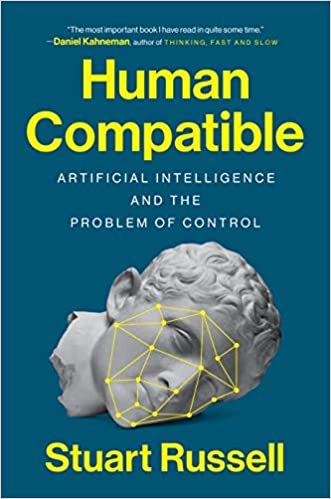
Human Compatible, by Stuart Russell
Artificial intelligence is an upcoming tidal wave threatening employment and human relationships. But more significantly, it also threatens civilization. Human and machine conflicts seem inevitable, and their outcomes are now more predictable.
But Stuart argues that we can avoid this scenario. Rethinking artificial intelligence from the ground up is what researchers need to do at the moment.
We need to rebuild AI on the principle that machines shouldn’t be sure about what they need to satisfy according to human preferences. They would be altruistic, humble, and committed to pursuing human objectives and not their own. The new way would also create provably beneficial and deferential machines.
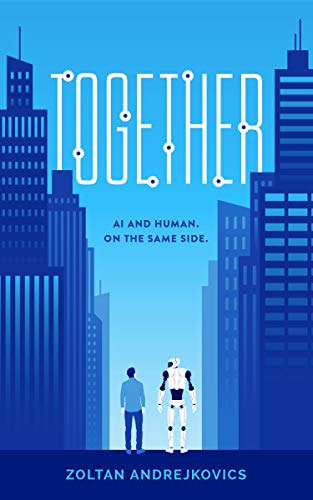
Artificial Intelligence, by Melanie Mitchell
How good are artificial intelligence programs? How do they function, and what causes them to fail? To what extent will they become humanlike, and how worried should we be about them overpowering us?
Melanie describes AI programs’ cutting edge, human inventors, dominant AI methods, and the historical thought processes that led to their recent success. She interweaves science stories and the ones behind them to offer readers a captivating, humorous, and clear-sighted book.
This book will guide you to understand better modern-day artificial intelligence, its quest toward human-level intelligence, and futuristic impacts- the hopes and fears.
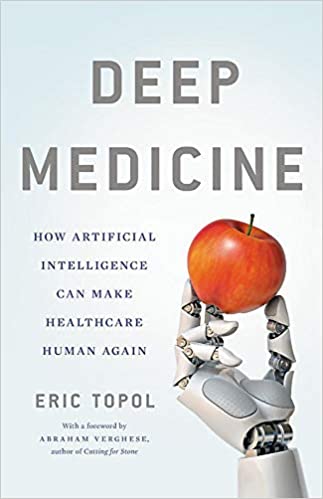
Deep Medicine, by Eric Topol
AI can better the medical field. It can revolutionize patient care and empower physicians.
Medicine has become disastrous and inhuman to some extent. Doctor-patient relationships, which are the foundation of medicine, have been broken. Physicians are overwhelmed or distracted, not truly connecting with their patients. These factors lead to misdiagnoses and errors.
In this book, Eric shows readers how AI can help. With AI, major medical transformations can take place. It can change how doctors work- handling diagnosis and treatment, reducing costs and human mortality. AI can free doctors from tasks that tamper with human connection resulting in genuine healing.
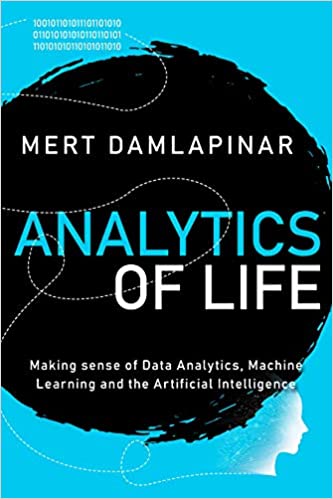
Analytics of Life, by Mery Damlapinar
Analytics of life explores the different stages of AI to the layperson, its powerful benefits, and risks. It also provides a method to analyze machine learning and big data to enable users to maximize the new realm of AI for businesses and everyday jobs.
There are excellent details about the differences between AI, data analytics, and machine learning. Readers also get to find out the jobs AI is likely to replace and which ones are safe from the tremendous revolution of data analytics. Mery also suggests different ways for data analytics applications.
This book is ideal for business professionals, strategists, consultants, entrepreneurs, educators, and anyone interested in the future.
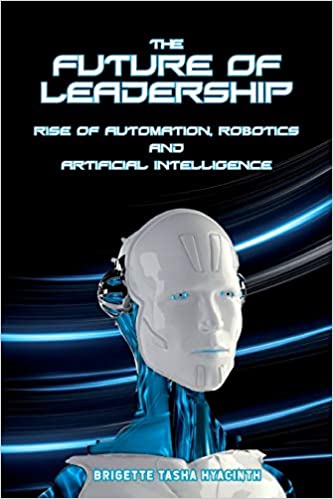
The Future of Leadership, by Brigette Tasha Hyacinth
Get a comprehensive view of what’s happening in the AI world and emerging technologies and see how we can navigate this enormous technology.
We must candidly answer some questions to avoid painting a false picture about AI.
Could AI be the greatest threat to existence? Will it take away our jobs? Is privacy not a thing anymore? Will it make us happier?
We now live in one of the most crucial and pivotal points in history. AI is about to affect every society. It is time for AI distinction. Individuals from diversified backgrounds and disciplines need to join this AI discussion. All our futures are at stake, and we need leaders to put us first and stand on integrity.
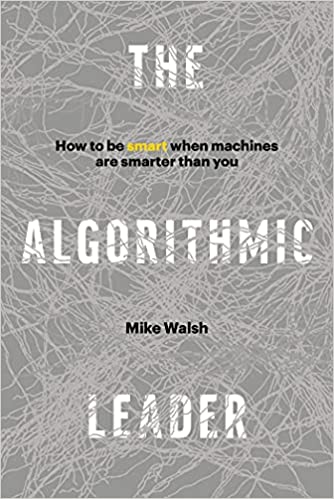
The Algorithmic Leader, by Mike Walsh
Robots replacing us is not the most significant threat to humankind. Our reluctance for reinvention is. We live in a world where AI runs things, and it is about to transform every aspect of life. While we live in fear of what AI can do, machine intelligence raises an essential question; what is the real human intelligence potential in the 21st century?
Walsh offers a guide on what it will take to succeed in this AI era. He highlights ideas such as digital ethics, machine learning, probabilistic thinking, de-centralized organization, and disruptive innovation. These are the foundations of new decision-making approaches, problem-solving, and leadership, and they are vital for our survival.
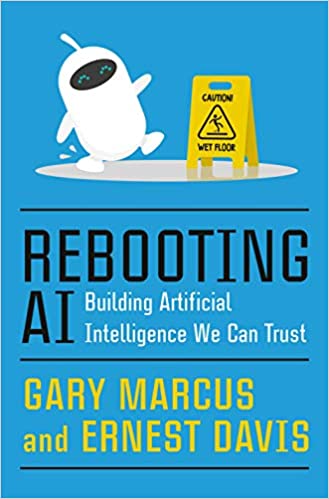
Rebooting AI, by Gary Marcus & Ernest David
There is a lot of hype that surrounds AI. However, coming up with intelligence that exceeds or rivals human levels is more intricate than we have been made to believe.
According to Gary and Ernest, a computer beating human is not a complete signal that we are on our way to super-intelligent machines and fully autonomous cars. Significant achievements have occurred in closed systems, and the approaches we know are too narrow for achieving genuine intelligence.
The real world is open-ended and highly complex. But how do we bridge this gap, and what impacts should we be ready to face afterward?
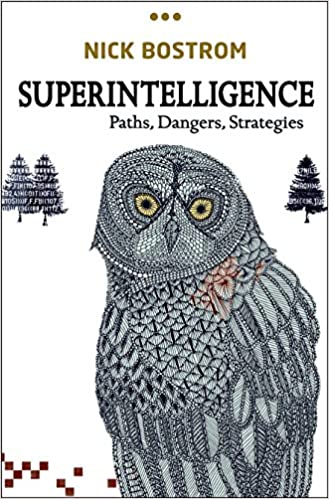
Superintelligence, by Nick Bostrom
Superintelligence is a foundation for making out humanity’s future and intelligent life. As humans, we have a brain capable of making out things in ways other animals can’t. It is this distinction that makes us dominant.
If machine brains transcend human brains intelligence-wise, there is a possibility that this superintelligence will become too powerful for us to control. Our fate would be dependent on the machines’ superintelligence actions.
Can we develop a seed AI for initial engineering conditions that make us survive the explosion of intelligence? How can we attain controlled detonation?
FICTION AI BOOKS
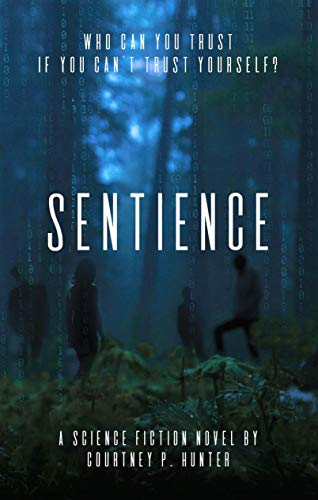
Sentience, by Courtney Hunter
Leo Knox runs from her violent past and then participates in an AlgorithmOS scientific experiment. Soon, she discovers that this is a test to measure how AI blends in with humanity.
Leo and other twenty-three enter Eden where the test is to be performed. Even though everyone appears human, four people are advanced humanoid AI forms. Members need to identify the AI. The four are unaware of their nature, and they will cause everyone to question their known reality.
The experiment will be packed with robotic obstacles meant to elicit human emotion and response. It will be chaotic, adventurous, and full of lies. Who can Leo trust?
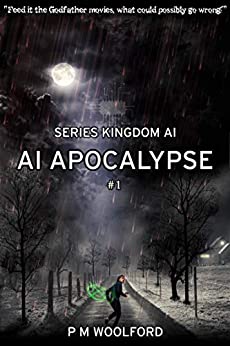
AI Apocalypse, by P M Woolford
AI Apocalypse is one must-read novel. In 2025, a magnetic pole flips, triggering a shift in the planet’s crust and enormous tsunamis. The Mississippi grows large, Florida disappears, and River Thames causes inland floods.
Meanwhile, Saudis deliver food help using robots created using smuggled United States technology. Major capitals have fighting machines, and the Saudis seize Washington.
Two decades later, a power struggle erupts between Kaleb Al Hakim and Qatari robot Aisha. But then, a self-programming Artificial Intelligence, the Singularity surfaces. It is in cahoots with a Saudi army General who accuses Aisha of a scheme to destroy the human race. Can he control the Singularity, or will the growing and powerful AI control him?
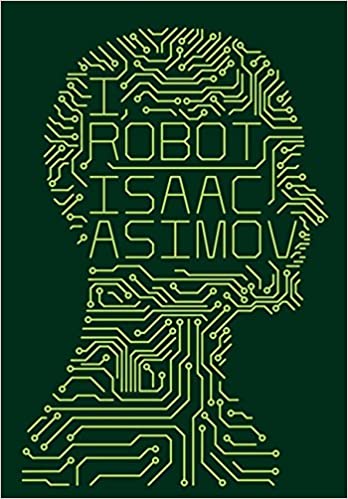
I, Robot, by Isaac Asimov
This book has scientifically factual stories about mind-reading robots, robots that went mad, and humorous robots. It also depicts robotic politicians and robots that can run the world in secret.
How can we live with machines that may become more intelligent than us over time but not clash the inventions?
Three Robotics Laws are highlighted; a robot may not cause a human being harm or injury through inaction, a robot must execute tasks as per the orders humans give it except if the demands conflict with the previous law, and a robot must guard its existence as long as that doesn’t conflict with the other two laws.
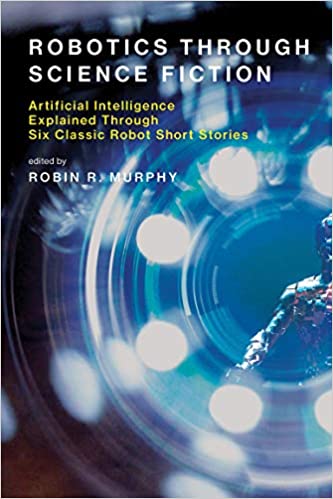
Robotics Through Science Fiction, by Robin R. Murphy
This book is one of the best artificial intelligence books for those looking for a robotics introduction.
Robin uses commentary and six science fiction stories to illustrate primary AI principles and address two highly debated topics- programming intelligent robots and the limits of autonomous robots. This is an excellent way to grasp the discussed concepts and understand them better.
These stories cover behavior-based robotics, telepresence, machine learning, human-robot interaction, deliberation, and ethics. Every story offers a thorough discussion of unique implications, and readers can consider the accounts as a collection of fanciful and practical insights for case studies.
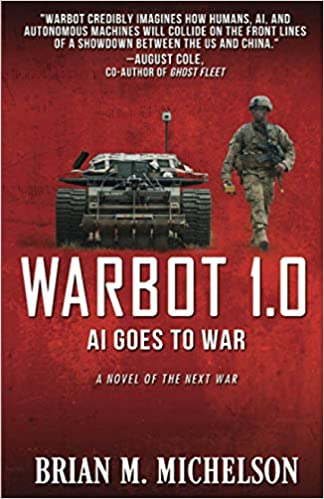
Warbot 1.0, by Brian M. Michelson
In 2033 China’s neighbors have chafed at its substantial efforts for domination. Taiwan teeters are almost declaring independence. The newly-elected Philippines president then attempts to eliminate Chinese military forces only to bring forth a problem.
China sets up a high-tech penal expedition against him. According to China, this will be a lesson to other bordering nations.
The antagonism spreads and even draws in the US. AI weaponization, robotics, cyber, big data, and media will alter how this dispute is fought, but the war’s nature will remain intact. It is a complicated human will contest that is brutal and deadly.
Final Thoughts about Book on Artificial Intelligence
There is no doubt that artificial intelligence (AI) is one of the most rapidly advancing technologies in the world today. And as this technology continues to evolve, so too does our understanding of it.
Since the very first edition of Peter Norvig and Stuart Russell’s book Artificial Intelligence: A Modern Approach a lot of time have been passed. AI systems today are very different from those described in the book. The field of AI has evolved a lot in the past few years.
Some of the most significant changes have been made to the way AI systems are designed. In the early days of AI, many systems were designed by hand. Today, however, most AI systems connect to a practical application. This change has made it possible to create much more complex and powerful AI systems.
Another major change has been the way AI system are used. In the past, many AI systems were designed for specific tasks such as playing chess or solving mathematical problems. Now, AI systems are being used for a much wider range of tasks such as driving cars and providing customer service.
If you want to dig a little bit deeper into AI, check our selection on the top Artificial Intelligence ethics books.
